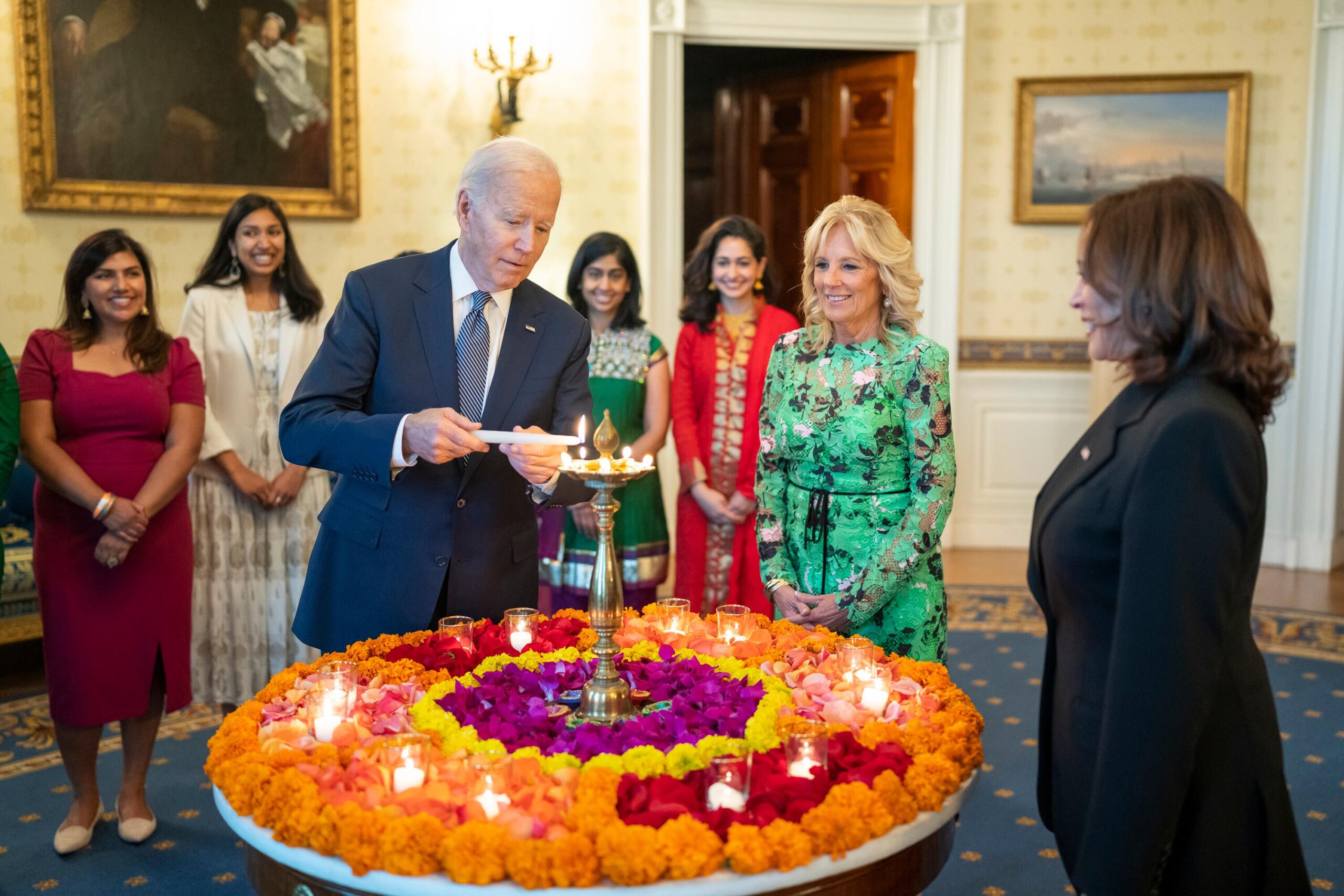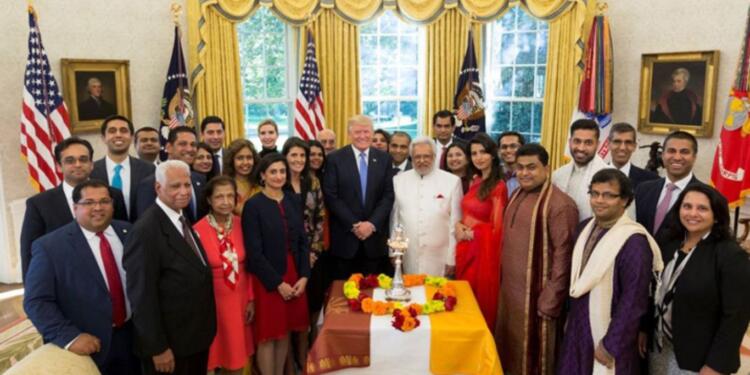Diwali formally makes space in American consciousness on November 1, 2024. It is not a stretch of the imagination that the festival of lights will be a projection of India’s cultural traditions through its millions-strong diaspora.
For the first time in American history, students of public schools in New York City will enjoy a holiday on Diwali day, on November 1. The day was decreed as a holiday last year, but with Diwali falling on a Sunday, it was technically not considered a ‘holiday’.
Three days after Diwali, the United States will go to elections in November to elect President Joe Biden’s successor. The choice is between incumbent Vice President Kamala Harris and former Republican president, Donald Trump. Over the years, the strategic relationship with India has received support from Democrats and Republicans, and Presidential candidates of both parties have been trying to court the Indian diaspora to tilt the balance of scale in their favour.
The Indian festival is being celebrated in nearly all major cities of the US this year, as it has also become the medium to seek support from the Indian diaspora and extend support to Indian-Jamaican-origin Kamala Harris.
Like never before, Diwali festivities, buntings, banners, and Melas are being organized by diaspora leaders as part of the Democratic publicity and donation campaigns for Kamala Harris.
Her racial origins have given her the support of the majority of the Indian diaspora and the support is being shown and reflected in the way the Indian Americans have begun to celebrate Diwali as part of the campaign.
The Democrats are promising the diaspora something that has been in the pipeline for years – declaring Diwali a federal holiday. There is no opposition to the proposal and it only has to see the light of the Day on the Hill. In 2016, a stamp on Diwali was taken out anyway.
Diwali left Indian American homes and took on a public role as the diaspora’s cultural icon in 2003 when President George W. Bush celebrated the festival in the White House for the first time. Later, in 2007, the United States Congress officially recognized the festival. In 2009, Barack Obama was the first president of the US who celebrated this festival personally.
The lawmakers in the country introduced the ‘Diwali Day Act’ in the US Congress. A leading Congressman from New York introduced this bill in the House of Representatives to declare Diwali a federal holiday in the USA.

In 2022, President Joe Biden celebrated Diwali at the White House with the biggest-ever celebration. The following year, Vice President Kamala Harris did the same at her official residence. Simultaneously, the festival entered globally known public spots in the US like California’s Disneyland and New York’s Times Square.
For Indian Americans, Diwali is a prominent part of their immigrant narrative. There was a time, not over three decades ago, when Diwali was hardly known in their adopted country. Original diaspora bodies like the Association of Indians in America held a Diwali Mela in the New Your South Street Seaport at that time. A bunch of enterprising immigrants took ghagra-clad girls carrying lighted diyas to the office of the New York Times, introducing the festival to the white population.
The festival became an extrovert in no time. The people took to the vibrant colours of the clothes Indians wore and the bright fireworks. Diwali soon became as important as Halloween, Thanksgiving, and Christmas.
The rise to prominence of the diaspora as heads of Fortune 500 companies, millionaires and billionaires, as heads of unicorns and giant corporations controlling hotels, food, and pharma elevated Diwali to another plane: from places like New York, Edison, New Jersey, and San Jose, California, it is now an intrinsic part of American cultural tradition.
Diwali has also taken on an Indian nationalist and religious tinge in the last decade mirroring the cultural aspirations of the political party in power in India since 2014.
This year’s Diwali will mark a decade of the assimilation of this ideological construct by a majority of the diaspora in the US. The Hindu temples are trying to outdo one another in celebrating Diwali.
For the record, there are over 1450 Hindu temples across the United States, with a majority on the East Coast. The New York region has more than 1135 temples; Texas has 128 and Massachusetts has 127.
The biggest festivities are at the top five temples — BAPS Swaminarayan Akshardham in Robbinsville, New Jersey, Malibu Hindu Temple, California, Sri Ganesha Temple, Alaska, Radha Krishna Temple, Utah, and Sri Venkateshwara Temple, Pennsylvania.
Earlier this month, South Florida cities officially recognized Hindu Heritage Month and Diwali through proclamations at recent commission meetings. The proclamations highlight the cultural contributions of the Hindu American community and its positive influence on education, business, and civic life.
Tamarac, Coral Springs, Parkland, Davie, Pembroke Pines, and other cities have issued proclamations and Diwali celebrations have been planned through November 16. On that day, the Indian Regional Cultural Center of South Florida will host its 12th annual Diwali Celebration at the Broward Convention Center, expecting over 10,000 attendees and featuring 500+ children on stage.
Other organizations, including the Hindu American Foundation (HAF), South Florida Hindu Temple, Shiva Vishnu Temple, and COHNA, have also played pivotal roles this year in promoting Hindu culture through educational programs, festivals, and outreach efforts. Their collaboration with local governments has further amplified cultural awareness and unity in the region, according to a diaspora newspaper, New India Abroad.
























